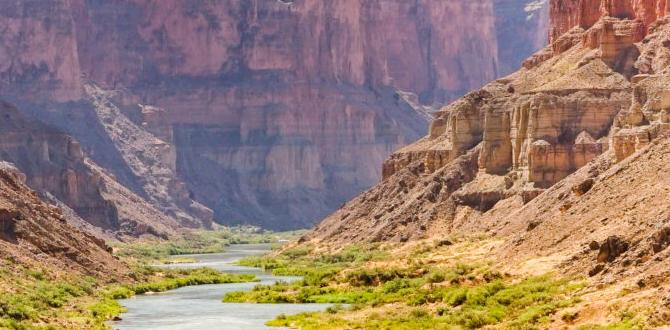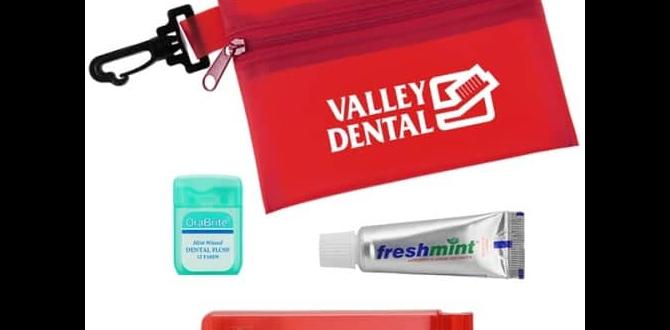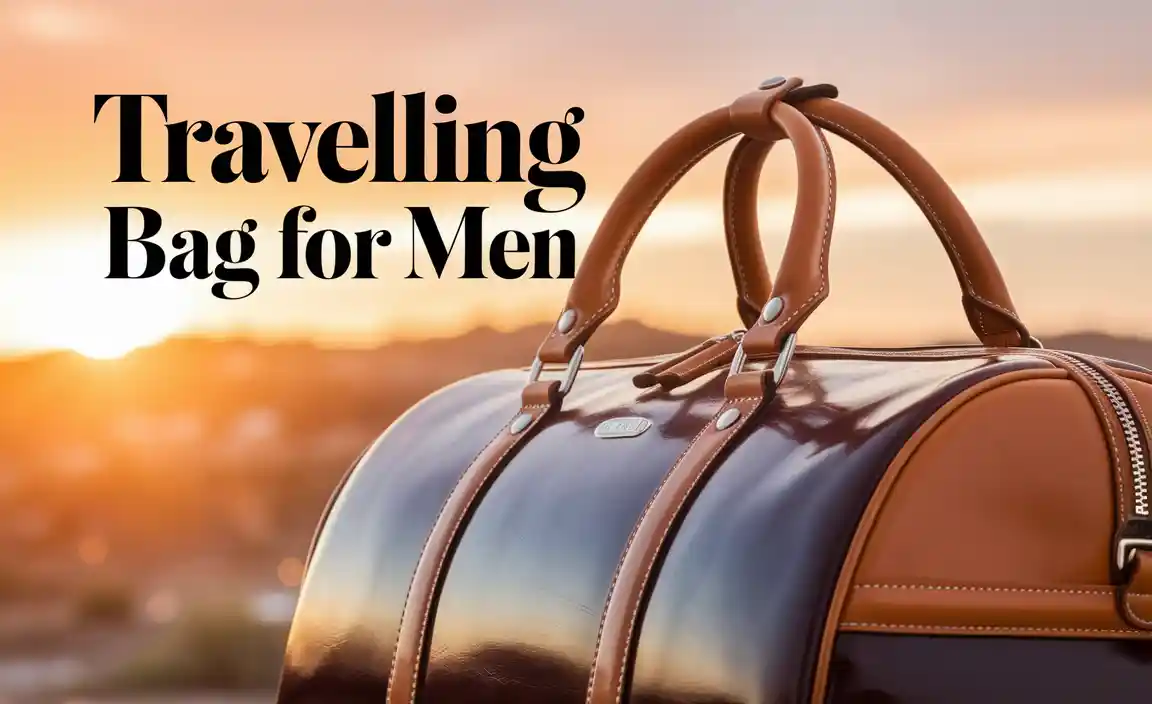Planning an Algeria summer trip requires understanding its climate, cultural nuances, and logistical needs to ensure a comfortable and memorable adventure. This guide provides essential steps for a stress-free journey, from booking flights to packing smart.
Planning a summer trip to Algeria might seem a little daunting, especially if it’s your first time. You’re probably wondering where to start, what to pack, and how to make sure everything runs smoothly.
Don’t worry, I’ve been there! It’s totally achievable to have an amazing Algerian adventure without the usual travel headaches. This guide is designed to break down the essential planning steps into simple, manageable tasks. We’ll cover everything from the best time to visit within summer, what to expect weather-wise, and how to pack comfortably, so you can focus on the excitement of exploring this beautiful country.
Choosing Your Algerian Summer Adventure: When to Go
While we’re talking about a “summer trip,” Algeria’s vastness means “summer” (June to August) can feel quite different depending on where you plan to explore. Knowing these variations helps you pick the perfect time for your visit.
Peak Summer (July & August)
This is when the heat is most intense, especially in the Sahara Desert and the southern regions.
Pros: Long daylight hours for exploring; more organized tours available for desert excursions.
Cons: Very high temperatures can be challenging; many locals might be less active during the hottest parts of the day.
Ideal for: Desert adventurers comfortable with extreme heat, those looking for the most vibrant and active tourist season.
Early Summer (June)
June offers a slightly more forgiving heat, especially in coastal areas.
Pros: Still warm and sunny, but with more manageable temperatures compared to July and August; coastal breezes can be refreshing.
Cons: Can still get quite warm, particularly inland.
Ideal for: A balanced experience of warmth and comfortable exploration, enjoying both cities and coastlines.
Late Summer (September)
While technically the end of summer, September often retains summer warmth, especially in the south, with slightly cooler evenings.
Pros: Temperatures tend to be more pleasant across the country; tourist crowds might start to thin out.
Cons: Daylight hours are starting to shorten.
Ideal for: Those who prefer less intense heat but still want to enjoy warm weather and a more relaxed touring pace.
Understanding Algeria’s Summer Climate
Algeria boasts a Mediterranean-influenced coast and an extreme desert climate inland. Summer means sunshine, but also significant heat.
Coastal Regions (e.g., Algiers, Oran)
Temperatures: Expect average highs in the low to mid-30s Celsius (86-95°F). Evenings are usually pleasant, dropping to the low 20s Celsius (70s°F).
Rainfall: Very rare during summer months.
Humidity: Can be noticeable, making the heat feel more intense.
Inland & Southern Regions (e.g., Tamanrasset, Sahara Desert)
Temperatures: Daytime temperatures frequently soar above 40°C (104°F), often reaching 45-50°C (113-122°F) in the Sahara. Nights are cooler, especially in elevated desert areas, but can still be warm.
Rainfall: Virtually non-existent.
Key Factor: The dry desert air can make the heat more tolerable than humid heat, but dehydration is a serious risk. Always stay hydrated!
Essential Documentation & Visas
Before you even think about packing, sorting out your travel documents is crucial.
Passport
Validity: Ensure your passport is valid for at least six months beyond your intended stay in Algeria.
Blank Pages: It should have at least two blank pages for entry and exit stamps.
Visa Requirements
Algeria requires a visa for most nationalities. It’s best to apply well in advance.
Where to Apply: Through the Algerian embassy or consulate in your home country.
Application Process: This typically involves filling out an application form, providing passport photos, a letter of invitation (if applicable, e.g., for a tour or visiting family), and proof of travel arrangements.
Processing Time: Can vary, so start early! Check the specific requirements for your nationality on the official embassy website. For instance, the Algerian Embassy in Washington D.C. provides detailed information on their site.
Types of Visas: Tourist visas are most common, but business or other types may be available depending on your travel purpose.
Travel Insurance
This is non-negotiable. Medical emergencies, trip cancellations, or lost luggage can happen.
Coverage: Ensure your policy covers medical expenses, emergency evacuation, and trip interruption.
Provider: Research reputable travel insurance providers that offer comprehensive coverage for Algeria.
Booking Your Algeria Summer Trip: Flights & Accommodation
Once your documents are in order, it’s time to book the big things!
Flights
Major Airports: The main international gateways are Algiers (ALG), Oran (ORN), and Constantine (CZL).
Booking Timing: For summer travel, book flights 2-4 months in advance for the best prices and availability.
Airlines: Major carriers operate routes, often with a connection in Europe. Consider airlines like Air France, Turkish Airlines, or Vueling, depending on your departure point.
Flexibility: If your dates are flexible, use flight comparison websites to find the cheapest days to fly.
Accommodation Options
Algeria offers a range of places to stay, catering to different budgets and preferences.
Hotels
Cities: Major cities like Algiers and Oran have a good selection of international-brand and local hotels.
Standards: Ratings can vary, so read recent reviews.
Booking: Use popular booking sites for comparison and reservations.
Riads & Guesthouses
Charm: For a more authentic experience, consider traditional riads or guesthouses, especially in older parts of cities or in more historical towns.
Availability: Can be less common than hotels, so book ahead.
Desert Camps
Sahara: If you’re heading to the desert, overnight stays in Bedouin-style camps are a must-do.
Types: Range from basic and rustic to luxurious glamping experiences. Book through tour operators.
Packing Smart for Algeria’s Summer Heat
Packing light and smart is key to comfort, especially in the summer heat. Breathable fabrics and versatile items are your best friends.
Clothing Essentials
Lightweight & Breathable Fabrics: Cotton, linen, and moisture-wicking synthetic blends are ideal.
Modest Attire: Algeria is a Muslim country. While coastal cities and tourist areas are more relaxed, it’s respectful to dress modestly, especially outside major tourist hubs. This means covering shoulders and knees. Lightweight, long-sleeved shirts and trousers or long skirts are perfect.
Layering: Evenings can be cooler, especially in desert areas or at higher altitudes. A light scarf or jacket is useful.
Sun Protection: Wide-brimmed hats, sunglasses, and UV-protective clothing are essential for prolonged outdoor activities.
Recommended Items:
Tops: 3-4 loose-fitting t-shirts/blouses (long-sleeved options are great for sun protection).
Bottoms: 2-3 pairs of lightweight trousers, long skirts, or capris.
Dresses/Jumpsuits: A couple of lightweight, modest maxi dresses or jumpsuits.
Outerwear: 1 light cardigan or jacket for evenings, and maybe a light windbreaker if going to the desert.
Scarf/Pashmina: Invaluable for covering up when needed and for sun protection.
Swimwear: If your accommodation has a pool.
Comfortable Shoes: Sturdy walking shoes or sandals for exploring; a pair of flip-flops for relaxing.
Comfort and Personal Care Considerations
For a stress-free trip, especially during longer durations or challenging conditions, being prepared for personal comfort needs is paramount. This includes ensuring you have access to essential personal care items, which can sometimes be difficult to find in specific destinations or of preferred brands.
Reusable Water Bottle: Essential for staying hydrated in the heat and reducing plastic waste. Many hotels and tour providers can refill it for you.
Sunscreen: High SPF, broad-spectrum sunscreen is crucial.
Insect Repellent: Especially for evenings or if staying near water.
Hand Sanitizer: For hygiene on the go.
Personal Hygiene Products: Pack any specific items you prefer, such as specialized skincare or feminine hygiene products, as availability can be limited.
Adult Diapers/Incontinence Products: For travelers who require them, it’s always best to pack an ample supply of your preferred adult diapers or protective underwear. Brands like Tena, Depend, or specialized medical supply store options can provide comfort and security, especially for long travel days or during desert excursions where facilities might be basic. Carrying these discreetly packed ensures you have reliable protection without worry.
Child Diapers (for families): If traveling with young children, ensure you have enough diapers, wipes, and diaper rash cream for the entire trip. Consider the climate; staying dry is key to preventing irritation. Having a variety of sizes and types, like overnight diapers for longer journeys or swimming diapers if planning water activities, can be very helpful.
Other Essentials
Travel Adapter & Power Bank: Algeria uses Type C and Type F electrical outlets. A power bank is invaluable for keeping your devices charged on the go.
Medications: Bring a sufficient supply of any prescription medications, along with a copy of your prescription. A basic first-aid kit with pain relievers, antiseptic wipes, and bandages is also a good idea.
Documents: Keep copies of your passport, visa, and flight details separate from your originals.
Small Backpack/Daypack: For carrying water, snacks, sunscreen, and a camera during daily excursions.
Navigating Algeria: Transportation and Getting Around
Getting around Algeria can be an adventure in itself. Planning your transport will make your journey smoother.
Within Cities
Taxis: Widely available in cities. Agree on a price before starting your journey or ensure the meter is used. Unofficial “petit taxis” (usually older sedans) are common for shorter distances.
Public Transport: Buses and trams operate in larger cities like Algiers and Oran, offering a budget-friendly option.
Between Cities
Trains: Algeria has a national rail network connecting major cities. It’s a comfortable and scenic way to travel, though services can be slower than buses. You can check schedules and book tickets via the SNTF (Société Nationale des Transports Ferroviaires) website.
Buses: Intercity buses are extensive and often faster than trains. Companies like SNTF also operate bus services, and there are many private operators.
Flights: Domestic flights are available between major cities, saving significant travel time for longer distances, especially to the Sahara. Air Algérie is the national carrier.
Desert Travel
4×4 Vehicles & Tours: For exploring the Sahara, hiring a 4×4 vehicle with a driver is highly recommended. This is typically arranged as part of a desert tour.
Self-Driving: Generally not recommended for the Sahara unless you are highly experienced and have appropriate support.
Health and Safety in Algeria
Like any travel destination, being informed about health and safety is important for a worry-free experience.
Staying Healthy
Hydration: This cannot be stressed enough, especially in summer. Drink plenty of bottled water.
Food Safety: Eat at reputable restaurants and ensure food is cooked thoroughly. Peel fruits and vegetables yourself.
Sun Protection: Use sunscreen, wear a hat, and seek shade during the hottest parts of the day.
Medical Facilities: Major cities have well-equipped hospitals, but facilities can be limited in remote areas.
Safety Tips
Be Aware of Your Surroundings: As with any travel, be mindful of your belongings, especially in crowded places.
Respect Local Customs: Dress modestly and be sensitive to local traditions, particularly outside of major tourist areas.
Photography: Ask for permission before taking photos of people.
Alcohol: Consumption is permitted in hotels and licensed establishments, but public intoxication is socially frowned upon and potentially illegal.
Government Travel Advisories: Always check your home country’s government travel advisories for Algeria before and during your trip. For example, the U.S. Department of State often provides detailed safety and security information.
Key Destinations for Your Algeria Summer Trip
Algeria offers incredible diversity, from Roman ruins to stunning coastlines and vast desert landscapes.
Algiers
Highlights: The Casbah (UNESCO World Heritage site), Notre Dame d’Afrique, the Museum of Antiquities and Islamic Art, vibrant Corniche.
Summer Vibe: Bustling with life, with pleasant evenings perfect for strolling along the waterfront.
Oran
Highlights: The Santa Cruz Fortress, the historic city center, modern architecture, lively French colonial past.
Summer Vibe: Known for its nightlife and beautiful beaches nearby.
Constantine
Highlights: The dramatic Sidi M’Cid bridge, Roman ruins of Tiddis, Emir Abdelkader Mosque.
Summer Vibe: A city perched dramatically on a gorge, offering breathtaking views and a cooler inland climate than the coast.
Tamanrasset & the Sahara Desert
Highlights: Gateway to the Sahara. Experience sand dunes, rock formations (like Hoggar Mountains), Tuareg culture, stargazing.
Summer Vibe: Extremely hot, best experienced with guided tours in air-conditioned 4x4s. Early morning and late evening are prime exploration times.
Djemila & Timgad
Highlights: UNESCO World Heritage Roman ruins, offering a glimpse into ancient history.
Summer Vibe: Take care in the midday sun; exploring early or late is best.
Sample Itinerary: 7-Day Algeria Summer Introduction
This is a suggestion, adaptable to your pace and interests.
| Day | Location | Activities | Notes |
| 1 | Algiers | Arrive, check into hotel, explore the Casbah, evening stroll on Corniche. | Get a feel for the capital. |
| 2 | Algiers | Visit Notre Dame d’Afrique, Museum of Antiquities, enjoy local cuisine. | Immerse in culture and history. |
| 3 | Fly to Djanet/Tamanrasset | Fly south, transfer to desert camp for sunset over the dunes. | Prepare for desert heat. |
| 4 | Sahara Desert | Guided 4×4 tour of Hoggar Mountains (if near Tamanrasset) or Erg Admer (if near Djanet), stargazing. | Essential to have a guide. Stay hydrated. |
| 5 | Sahara Desert | Morning desert activity (e.g., camel trek), depart for Algiers. | Last chance for a desert sunrise. |
| 6 | Algiers/Day trip | Relax, revisit favorite spots, or take a day trip (e.g., Tipasa Roman ruins). | Flexible day to customize. |
| 7 | Departure | Enjoy a final Algerian breakfast, depart from Algiers. | Safe travels! |
Note: This itinerary focuses on a taste of Algeria. For a deeper dive, plan for at least 10-14 days.
Staying Connected: Internet and Mobile
Keeping in touch is easy with Algeria’s mobile network and Wi-Fi availability.
Mobile SIM Cards
Providers: Main operators include Mobilis, Ooredoo, and Djezzy.
Purchase: SIM cards can be purchased at kiosks or official stores in cities. You’ll typically need your passport.
Coverage: Generally good in urban areas and along main routes.
Wi-Fi
Hotels: Most hotels provide Wi-Fi, though the speed and reliability can vary.
Cafes & Restaurants: Some cafes and restaurants offer free Wi-Fi.
Public Wi-Fi: Less common and often less secure.
Data Roaming
* Check with your home provider about international roaming rates, which can be very expensive. Purchasing a local SIM is usually a more cost-effective solution.
Frequently Asked Questions
Q1: Is it safe to travel to Algeria in the summer?
A1: Algeria is generally safe for tourists, but like any destination, it’s important to stay aware of your surroundings and follow local advice. Check your government’s travel advisories for the most up-to-date information. The summer heat requires careful planning regarding hydration and sun protection.
Q2: What is the best way to travel between cities in Algeria?
A2: For comfort and speed on longer distances, domestic flights are excellent. Intercity buses are a popular and extensive option. Trains offer a more relaxed, scenic journey between major hubs. For remote areas or the Sahara, 4×4 vehicles are essential.
Q3: Do I need to wear a headscarf in Algeria?
A3: For women, covering your head is not strictly mandatory in all areas, especially in tourist-frequented parts of cities like Algiers. However, it is a sign of respect, particularly when visiting religious sites or in more conservative regions. For general modesty, covering shoulders and knees is recommended for everyone.





